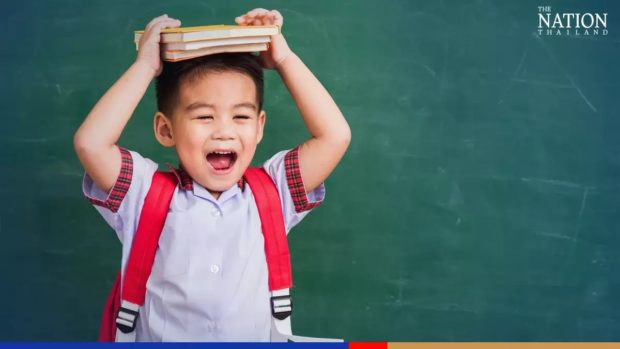
BANGKOK — The Covid-19 pandemic has had a seriously adverse impact on Thailand’s education system in the past two years, widening social inequality and inflicting learning loss on students.
Even though many schools organised online classes to enable students to learn amid the Covid-19 crisis, some students lost the opportunity to study due to lack of electronic devices, especially smartphones and stable internet connection.
Some migrant students in border provinces lost opportunities to study in Thai schools as they had to return to their hometown due to various factors, such as rising Covid-19 cases.
Stress was another factor that took a toll on students while taking online classes as they were forced to study in isolation at their residence without being able to interact directly with teachers and friends.
Homework assigned by teachers also caused stress among students as some of them could not clearly understand the subjects they were studying.
Meanwhile, the number of children infected with Covid-19 continues to rise despite more than 98 per cent of children aged above 12 years receiving vaccine jabs. However, only 3-4 per cent of children aged 5-11 have received their shots.
Department of Health data shows 334,030 children — 115,332 of them children aged 0-6 years — got infected with Covid-19 from January 1 to April 27. The Basic Education Commission (BEC) said on Tuesday that the commission is encouraging teachers, students and guardians to receive their Covid-19 jabs as soon as possible.
The number of children aged 0-6 years who have been vaccinated was low because their guardians did not allow them to receive the jab, said BEC secretary-general Amporn Pinasa.
Leading virologist Dr Yong Poovorawan on April 25 warned that extra precautions were needed during the opening of the new school year on May 17 as Covid-19 and other respiratory diseases, such as influenza, are likely to spread among students over the rainy season from June to September.
Covid-19 can still cause severe illness and even death to children, he added. Children in the under-5 age group are most vulnerable, as they are too young to be vaccinated. Children aged under 2 were especially at high risk, Yong said.
He urged the Thai Food and Drug Administration (FDA) to consider China’s policy of vaccinating children aged 3 and above to reduce the severity of their symptoms. The FDA currently allows vaccination from the age of six.
Yong said it would be difficult to ensure young students maintained social distancing and wore masks, so parents and teachers must cooperate on safety when schools open.
Meanwhile, primary school students should get vaccinated before returning to school and not attend classes if they are sick, he added.
RELATED STORIES
Many schools in Thailand hit by COVID-19 clusters after reopening
Bangkok schools reopen despite worries
COVID-19 here forever as the ‘new flu’, says top Thailand virologist